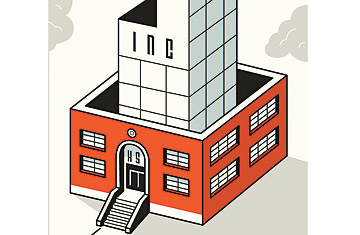
(2 of 2)
Harvard Business School professor Rosabeth Moss Kanter notes that as much as a third of the increase in unemployment in the Great Recession can be attributed to this mismatch between skills and jobs. The gap is greatest in positions that require more than a high school diploma but less than a bachelor's degree. That's where linking educators to the folks who do the hiring can have a really powerful impact. Michigan's No Worker Left Behind program, for example, guaranteed two years of paid tuition toward an associate's degree or occupational certificate. Educators worked with local employers to develop the right curriculum. Lots of companies--including Caterpillar and Siemens, which President Obama mentioned in his State of the Union speech--have started miniversions of this sort of program, often out of desperation since local schools simply aren't turning out grads with the skill sets they need.
That was certainly an impetus for IBM, which has hundreds of unfilled slots for middle-level workers. Chicago Mayor Rahm Emanuel is using the P-Tech playbook to set up five new STEM schools--the acronym stands for science, tech, engineering and math--in partnership with IBM, Microsoft, Verizon, Cisco and other companies.
Meanwhile, the kids in Crown Heights are exceeding expectations. P-Tech's hallways are postered with pictures of the dozens of ninth- and 10th-graders who've already met the City College admission requirements and are likely to complete the associate's program in four years rather than six. "These kids have already gone past a $15-an-hour lifetime," says Litow. "They are reinventing what high school--and their future--is all about." They may also be reinventing national competitiveness.
